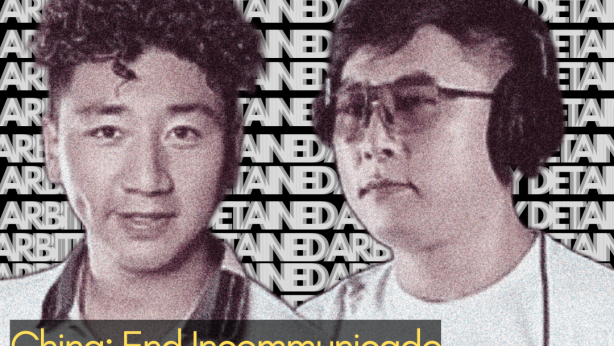Longest-serving political prisoner expected to be released next year
A Tibetan political prisoner who has spent 24 years in prison, is expected to be released next year if the prison authorities conclude that he has exhibited “good behavior” during his imprisonment, according to information received by TCHRD.
Lobsang Tenzin, the longest-serving known political prisoner in Tibet, is serving life imprisonment in Chushur (Chinese: Qushui) Prison, located in the northern part of Lhasa.
TCHRD has reported earlier that Lobsang Tenzin will be released this year. But sources now inform TCHRD that he will be released next year if his conduct in prison is deemed “good” by the authorities.
Lobsang Tenzin was arrested on 5 March 1988 during a protest against Chinese rule in Lhasa. At the time, he was around 24 and a student of Tibet University in Lhasa. In a controversial verdict, he was sentenced to death with two years’ reprieve, for causing the death of a police officer who had died after falling from a window. In 1991, after spending three years in Drapchi prison in Lhasa, Lobsang’s death sentence was reduced to life imprisonment following strong and sustained pressure from the international community.
Analysts have pointed out that police engaged in disproportionate use of force, shooting indiscriminately at protesters during the clashes that occurred during the 5 March 1988 protest.[i] The shooting was in response to a single stone thrown at the police.[ii]
On 31 March 1991, a prison guard caught Lobsang and another inmate Tenpa Wangdrak as they attempted to hand a letter to the then US ambassador to China, Mr James R. Lilley, who was on a visit to Drapchi. The letter contained a list of prisoners who had been tortured and information on torture methods used in the prison. Both Lobsang and Tenpa were brutally beaten and locked up solitary confinement for about three weeks. Later they were secretly transferred to the remote and high-security Powo Tramo Prison, located in Kongpo area in eastern Tibet. On an unknown date, Lobsang was again transferred from Powo Tramo Prison to Chushur Prison where he remains imprisoned to this day. In 1994, reports surfaced that Lobsang’s sentence had been reduced to 18 years for “good behavior”.
In recent years, Lobsang was said to be suffering from diabetes, which has caused kidney complications, weak eyesight, and back problems making it difficult for him to stand straight. His health condition has deteriorated over the years, which means that he is not being given timely and adequate medical help. He is now around 48.
Endnotes:
[i] Robert Barnett in Authenticating Tibet: Answers to China’s 100 Questions, University of California Press, 2008


